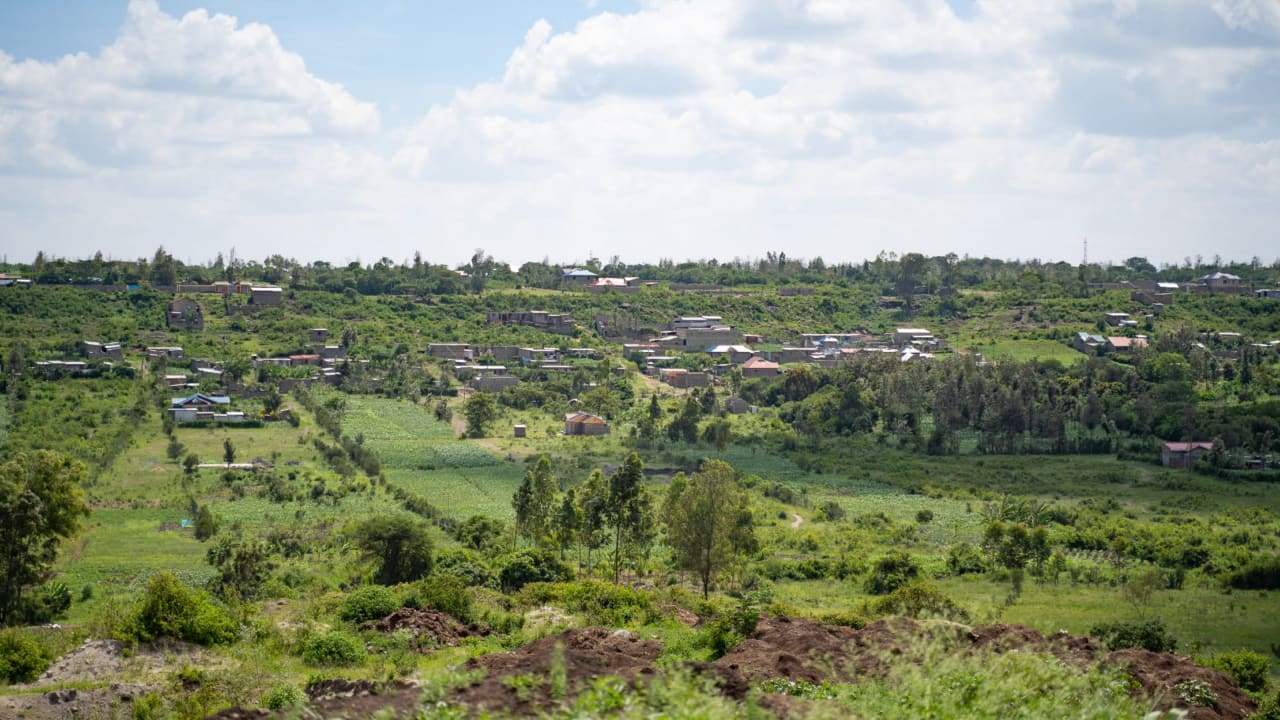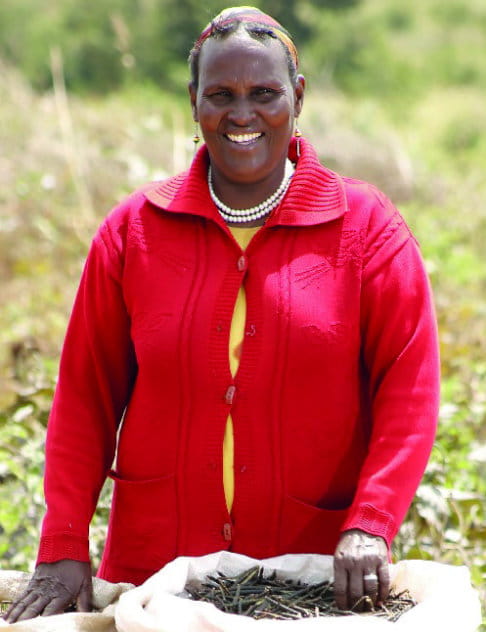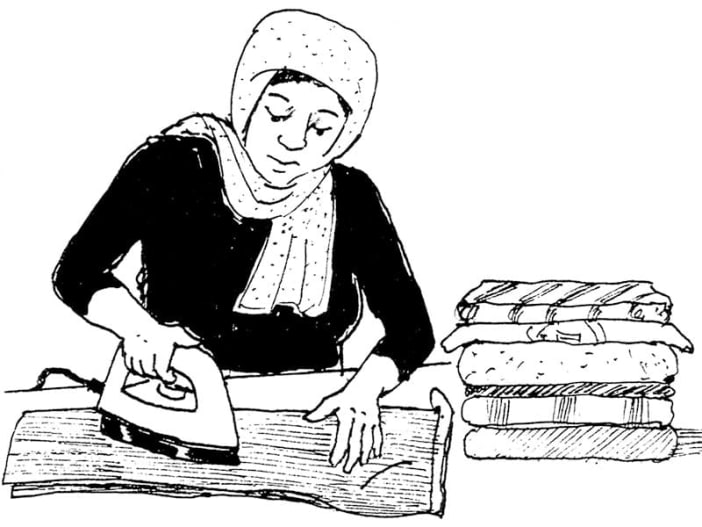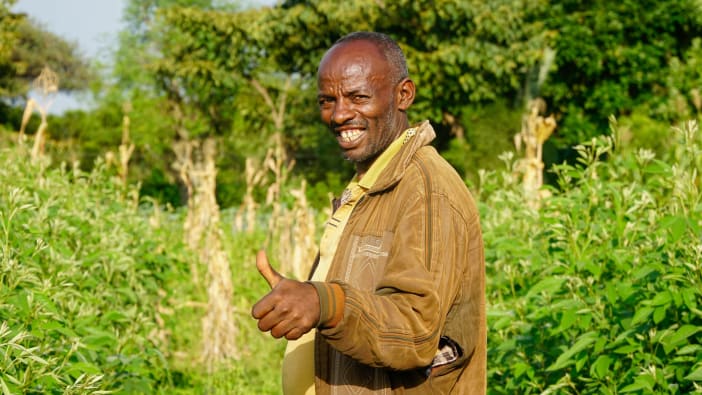New products and transport
solutions
Another potential product FCI identified was camel milk. Families in Marsabit were producing more than enough camel milk for their own needs, but were throwing away the excess. FCI knew that camel milk was in high demand and that it would be a good source of income.
Traders previously could not access camel milk from the area, because the milk would spoil while they collected it from individual farmers. But FCI helped the farmers arrange a central collection point. They taught the farmers to store the milk in clean stainless steel containers, since plastic containers made the milk spoil before reaching the market.
Linking farmers to markets
The third value chain FCI identified for improvement was goats and sheep. The market for livestock was two days’ travel away, and the animals would lose weight on the journey. Farmers had little bargaining power and would accept low prices for their livestock. At the market they had to sell through brokers, who would take a cut of the money.
FCI mobilised the communities in Marsabit to form ‘Commercial Villages’, where they could market their products together and improve their bargaining power. Through the Commercial Villages, FCI arranged meetings between the farmers and local traders. The farmers agreed to bring their livestock to a central location in their community, which the traders could visit to make their purchases. This saved time and effort for both the farmers and the traders, and meant the farmers got a fair price.
Partnerships for change
Through the Commercial Villages, FCI also linked the community members with other organisations. For example, they invited banks to the villages to train people in opening bank accounts and the importance of saving. The Ministry of Agriculture provided training on farming techniques.
A community transformed
The project caused a real change in people’s lives. Household income levels increased significantly. In one village, women’s incomes grew from less than $1 a day to at least $10 a day from the sale of camel milk – and sometimes up to $30.
The area had always been known for its tribal conflicts. But working together on the project improved relationships between tribes and religions, and between men and women. Crime rates have fallen in the area. Young people are now actively involved in earning money and are less likely to turn to negative behaviours such as drug abuse.
Several participants commented, ‘FCI has shown the value of what people already have. Most NGOs bring stuff, which is not able to transform us. But FCI has empowered us.’
To read more about how to analyse value chains, click here.










